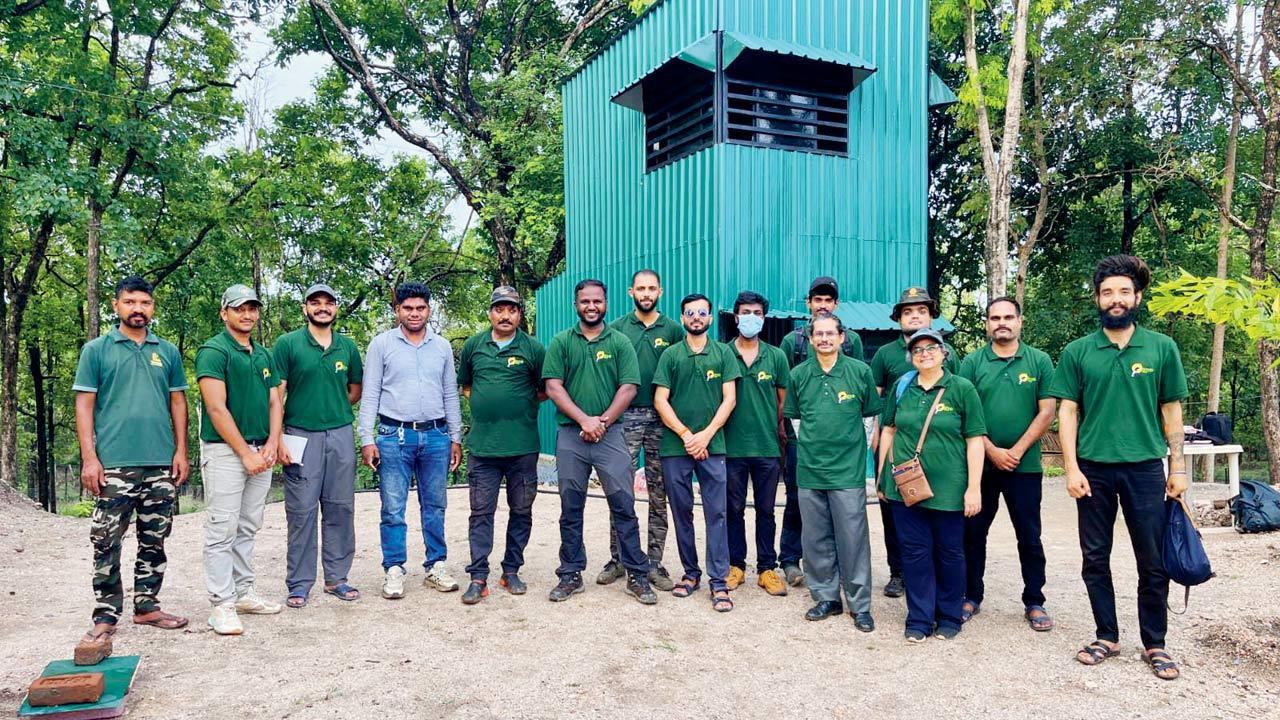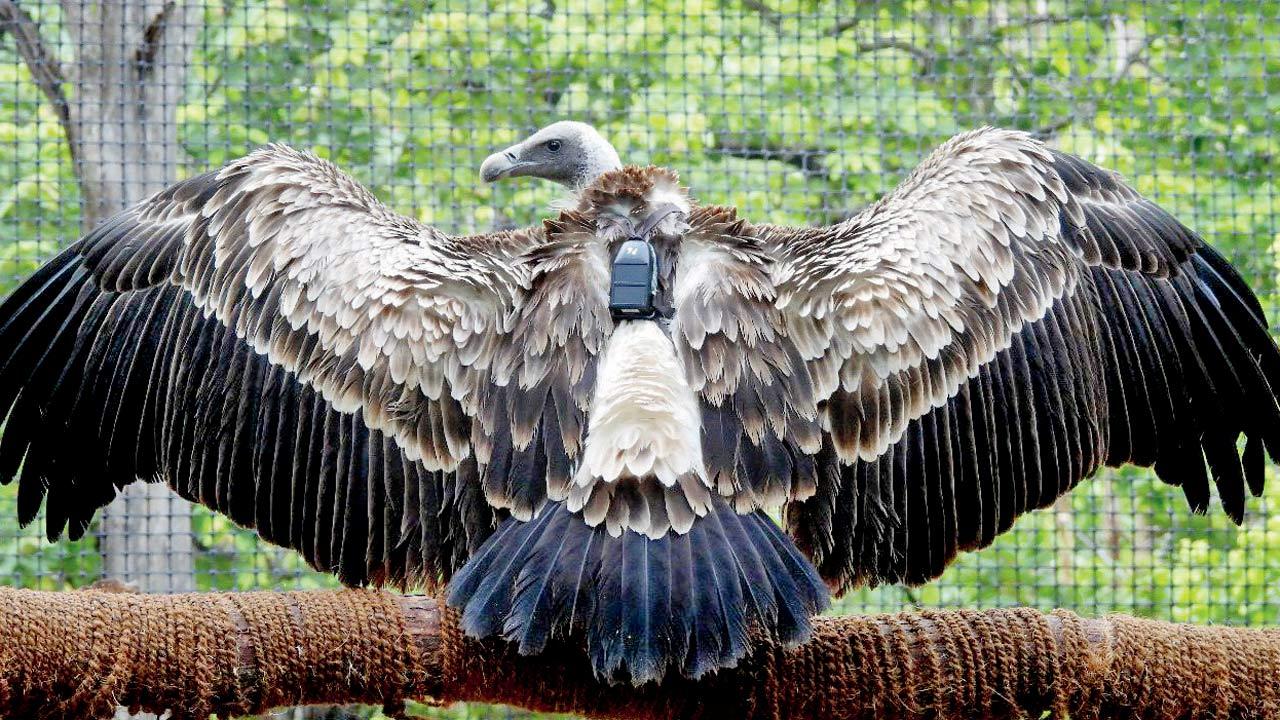Vultures brought from vulture Conservation Breeding Centre in Pinjore, Haryana, were successfully tagged to track them in the wild

BNHS team involved in vulture conservation
In a boost to the ‘Jatayu’ (vulture) conservation initiative in India, the state forest department and Bombay Natural History Society (BNHS) has attached GPS tags to 10 endangered Long-billed vultures brought from the Vulture Conservation Breeding Centre in Haryana, and kept in the pre-release aviary at the Pench Tiger Reserve of Maharashtra.
ADVERTISEMENT
They were brought on the day of inaugration of Ram Temple. The vultures were released in the soft release, i.e., pre-release aviaries in the Pench Tiger Reserve and Tadoba Andhari Tiger Reserve in Maharashtra.
Ten Long-billed vultures were released in the pre-release aviary set up in East Pench range of Pench Tiger Reserve. On January 21, a Jatayu Conservation Project was launched in Tadoba Andhari Tiger Reserve by Sudhir Mungantiwar, Minister for forests, cultural affairs and fisheries. The Jatayu Conservation Center has been set up as a major initiative of Tadoba-Andhari Tiger Reserve and BNHS, with aim of re-establishing a population of the endangered Jatayu in the area.
 The Long-billed vulture with GPS tag at the Pench Tiger Reserve
The Long-billed vulture with GPS tag at the Pench Tiger Reserve
In the first phase, 10 White-rumped Vultures from this center were kept under the care of the researchers in the pre-release aviary created in the Botezari area of Kolsa range of Tadoba-Andhari tiger reserve. These vultures were kept in the aviary for about five months to acclimatize with the local condition and to allow them to naturally meet the wild vultures and then released into their natural habitat.
Between 1990 and 2006, the number of vultures in the country declined at a very rapid rate. Due to the NSAID drug Diclofenac used in domestic cattle, the vultures that were commonly seen near human settlements have now disappeared. Since carcasses of dead cattle are the main food of vultures, the number of vultures that depend on these domestic animals has declined rapidly.
Mainly Long-billed vulture, White-backed vultures and Slender-billed vultures of the genus Gyps, were included in the Critically Endangered list of IUCN. A Vulture Action Plan was published by the Union Ministry of Environment, Forests and Climate Change in 2006 for the conservation of these vultures, and it also banned the veterinary use of NSAID drug Diclofenac, which causes the death of these vultures.
Vulture Conservation Breeding Centers were established to revive these vultures. Recently, Minister Mungantiwar decided to release vultures into their natural habitat, highlighting the significance of “Jatayu” from the Ramayana.
In Pench Tiger Reserve, 10 Long-billed vultures were released under the guidance of Dr Prabhu Nath Shukla. The release was carried out by Vivek Rajurkar, Manan Singh Mahadev, Dr Sujith Kolangath, and others. The BNHS team, led by Kishor Rithe and Dr Shukla, completed the tagging operation with assistance from various experts and staff.
Rithe thanked the governments of Haryana and Maharashtra, the Central Zoo Authority, and the Ministry of Environment, Forests, and Climate Change for their support in vulture conservation.
10
No. of vultures tagged
 Subscribe today by clicking the link and stay updated with the latest news!" Click here!
Subscribe today by clicking the link and stay updated with the latest news!" Click here!







